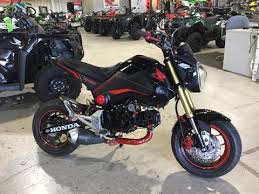north carolina motorcycle helmet law 2013

Bikers cherish right to ride without helmets, but hospitals prepare for worst Every year, when Robert and Sherri Goldstrom jaunt down from Leechburg, Pa. for the annual Bike Week revelry, Bibles to pass out and motorcycles in tow, they unhitch their trailer at a friend’s place in North Carolina. The rest of the trip turns into something of an internal battle of wills for Robert Goldstrom, 55, who prefers to ride without a helmet, as they barrel down toward Florida on Harley Davidson motorcycles. “I ride a bike because I want to be free,” he said. “It sort of defeats the purpose if I wear a helmet; it’s sort of confining.” Goldstrom’s personal choice between safety and freedom is shared by many bikers, and becomes an active concern for hospitals twice every year who staff up for the en masse arrival of motorcycle riders. Robert Goldstrom is forced to switch back and forth when he travels to Daytona Beach. Like Florida, there’s no strict helmet law in Pennsylvania.

But there are headgear requirements in North Carolina and Georgia. “He wears it,” said Sherri Goldstrom, 52, his wife, “but he doesn’t like it.”
1000cc bike for sale in sa During Bike Week’s 10-day stretch in March, hospitals worry and prepare most for biker injuries.
uw motorcycle helmet They often include bone fractures in the arms and legs;
motorcycle superstore utahroad rash and burns from exhaust pipes or from falling on concrete.
motorcycle tyres for bmw r1200rtAnd, emergency medicine workers say, there are a considerable number of head injuries. Statewide, motorcycle deaths have inched up consistently in 2011, 2012 and 2013, according to the most recent federal data available.

Half of the 485 motorcyclists who died in 2013 weren’t wearing a helmet. “People that escape injury or walk out of here alive are usually wearing a helmet,” said Kevin Captain, who manages the trauma program at Halifax Health Medical Center. “There’s no doubt that helmets save lives.” In July 2000, the state of Florida repealed its motorcycle helmet law. Registrations and fatalities climbed steadily in the years afterward. By 2008, the Florida Legislature instituted a mandatory safety course for new riders and registrations fell in many counties across the state. Now, only riders older than 21 can ride without a helmet and they must carry at least $10,000 worth of medical coverage. Six years after the law was repealed, the soaring numbers caught the eye of local leaders in Daytona Beach when a Bike Week Safety Task Force was formed. In 2006, an estimated 16 motorcycle riders died in traffic-related incidents during Bike Week in Volusia and Flagler counties.

What the task force found was that many of the accidents, at least in Volusia County, likely involved violation of rights of way, said Pat Kuehn, who works for Volusia County and chaired the working group. That’s when they decided to adopt the “look twice, save a life” slogan, marketing it heavily during the March event in 2007. The task force agreed that wearing helmets was beneficial, if not a lifesaving measure. “But it wasn’t the prime focus,” Kuehn said, “because at the time we believed it was a hard topic to push especially because we were promoting locally, and by the time the bikers got here they either had a helmet or they didn’t.” In Volusia, there were only six fatalities reported in 2007. “It was a dramatic drop the following year,” Kuehn said. “Of course, was it signs or was it a blip, we’re not real sure but we do think that we were successful in raising awareness.” Not all bikers need to be coaxed into wearing helmets.

The benefit is obvious to many. “I’ve been in bike accidents, but I’ve wrecked race cars. I know what helmets do for you,” said John Greek, 56, Gainesville. He once raced stock cars but opted for his electric blue 2008 Harley Davidson Ultra Classic parked on Main Street early Wednesday. “You gotta protect your noggin,” he added.vehicle with two or three wheels with a motor of no more than 50 cubic centimeters of piston displacement and no external shifting device. Legally, a moped's top speed cannot exceed 30 mph on a level surface. Although some mopeds on the market have top speeds higher than the 30 mph limit, they are illegal for use in North Carolina. If a moped does not fit the above requirements, it must be registered as a motorcycle under North Carolina law. In 2001, a change to the moped definition in North Carolina was considered, but no legal action was taken. In 2002, the North Carolina Department of Revenue changed the definition of a moped.

The general assembly approved a change in the maximum speed of a moped from 20 mph to 30 mph. Mopeds are not required to be registered in North Carolina nor be inspected regularly. Additionally, mopeds are not required to have liability insurance like other motor vehicles need to have. You must be age 16 or older to operate a moped on North Carolina highways or public vehicular areas, and a valid driver's license is not required If your moped does not meet the requirements to be classified as a moped, it must be registered as a motorcycle. To apply for your vehicle title and registration you will need to obtain your North Carolina Driver's License. Registration fees include a Certificate of Title for $40.00, an Instant Title for $75.00, license plate registration fee for private passenger vehicles for $28.00, a transfer of plate fee of $15.00, and a highway use tax of 3%. The Regional Transportation Authority Registration Tax ($5.00) applies to vehicles registered in Wake, Durham